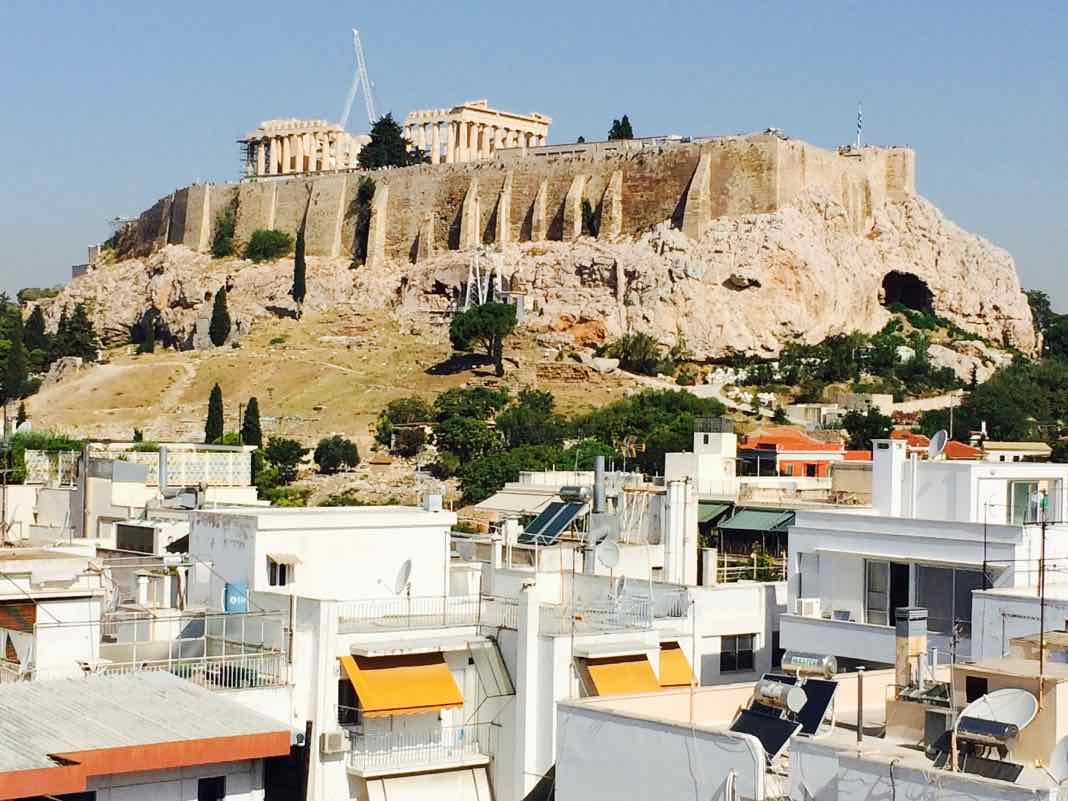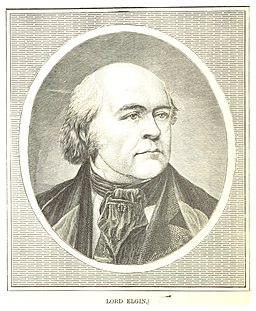Did Lord Elgin save the ancient Parthenon Marbles from destruction or did he steal them?
Well the answer is simple. If he saved them from potential destruction, well and good. He would’ve wanted to return them to Greece one day, especially after the establishment of the magnificent New Acropolis Museum in 2009. Otherwise, they were definitely stolen.
You can’t buy them. That’s like saying the President of the United States can sell the torch from the Statue of Liberty, or the President of France can sell the top part of the Eiffel Tower to another country.
They can probably do it by bogus means, but the majority of people from those countries won’t be thrilled about it. They’d definitely want them back one day if someone did manage to get away with it. No one should be able to buy major artistic pieces hacked off from these two cultural icons, let alone that from the cradle of western civilisation.
Imagine if the top of the Eiffel tower sat in a Berlin museum, after being hacked off, while the monument in France had its top section missing. Would the people of France want it back? Would there be any sort of valid case for Germany to keep it?
The Parthenon
The Parthenon was dedicated to the Goddess Athena.

It was constructed in 447-422 BCE around the time of Pericles. The decorative frieze running around the roofline of the Parthenon was carved under the direction of the brilliant sculptor Phidias (Pheidias). The Temple was adorned with elaborate marble carvings and statues, both inside and out. The most famous being the giant gold-and-ivory statue of Athena Parthenos, the warrior Goddess renowned for her wisdom.
Over the centuries the Temple has undergone numerous transformations. The building was used as a mosque by the occupying Turks in 1456. In 1687, the Turks used the Parthenon to house gunpowder. Venetian canon-fire hit the Parthenon which blew the ceiling off in a massive explosion. War bombings and ransacking over the centuries left the place in ruin.
Thomas Bruce and the Parthenon Marbles

Thomas Bruce (1766-1841) – British nobleman, English Diplomat and Ambassador to the Ottoman Sultan (1799-1803). He was the 11th Earl of Kincardine and the 7th Earl of Elgin. He’s more commonly known as Lord Elgin. As British Ambassador to the Ottoman Empire, he was based in Constantinople.
He became interested in the sculptures from the ruined Parthenon, while being the Ambassador to Ottoman Sultan Selim III, who ruled Greece at that time.
To possibly safeguard the Parthenon Marbles from further damage and destruction, Elgin had the foresight to arrange for some of the antiquities to be transported to England. The ruling Turks were not attached to them, letting Elgin ship them to England at his own expense, after he gained permission from Sultan Selim III.
Two thirds of the remaining Parthenon friezes and half the marbles were hacked off and cut into pieces for shipment to England. Lord Elgin orchestrated this between 1801 and 1805, though it possibly went on until 1812. Many considered it grand theft of the highest order, a further insult to the sanctuary of the Temple.
The action had been criticised as an act of vandalism, but apparently the Earl was later vindicated by an English government committee.
The 5th century BCE artistic wonders were supposedly purchased for Great Britain in 1816. They were placed in the British Museum in London. Strangely enough they were purchased at a price well below the cost of what Elgin is thought to have purchased them for.
Fifty or so of the best marble pieces became widely known as the “Elgin Marbles”. However, the Greeks and many other thinkers still consider the sculptures as being the “Parthenon Marbles” rather than the “Elgin Marbles”.
The Greeks obviously want the sculptures back since they built the ultra-modern New Acropolis Museum almost directly under the Acropolis to accomodate the entire collection of Parthenon Marbles.
This is the basic story anyway with some probable historical inaccuracies here and there. It’s hard to distinguish between truth and lies especially that far back in time. You get the general gist.
What should the English do with the Parthenon Marbles?
They should gift them to Greece. Simple as that. Britain has had them for long enough.
Famous individuals who’ve suggested the Parthenon Marbles should go back home to Greece include:
- Melina Mercouri
- George Clooney
- Tom Hanks
- Liam Neeson
- Matt Damon
- Bill Murray
Look at who you’re going against if you’re mind is set on keeping the Parthenon Marbles in Britain. Lord Byron even considered their removal to be an act of vandalism, the equivalent of looting, after seeing the walls defaced. I’d like to think that Lord Elgin made Lord Byron feel a bit better, by letting him know that he only wanted to keep them safe in England, until they could safely reside back in Greece one day.
What should Greece do to speed up the return of the Parthenon Marbles?
Greek artists should create life size artistic caricatures of the extended British Royal family, past and present. Then stick them inside the New Acropolis Museum in a prominent position.
A thinking cloud sign should be displayed over the English royal family:
“You’re not getting the Elgin Marbles back”
Goddess Athena should be nearby facing them. A sign next to her should say:
“We’ll see”
This will be a great photo opportunity for visitors. The British Royal family and the Goddess Athena can be snapped together in one photo. Visitors can then stand closer to the side they prefer, either the British Royal family, or Athena the Goddess of Wisdom.
What about the British Museum?
The British Museum can make use of white replicas of the Parthenon Marbles where they want.
To show gratitude for their return, Greece should give Britain a unique thank-you gift in the form of a modern artistic sculpture with a sentimental message. They should also give the British Museum 10 tickets every year for twenty years, where ticket holders get an all expenses paid trip to Greece. Two nights in Athens, followed by 5 nights on one fabulous Greek Island. The British Museum can then have a lottery system, where 5 Golden Greek tickets are given to two lucky winners.
I wonder how long it would take for the Parthenon Marbles to be returned to Greece if this action was taken?





